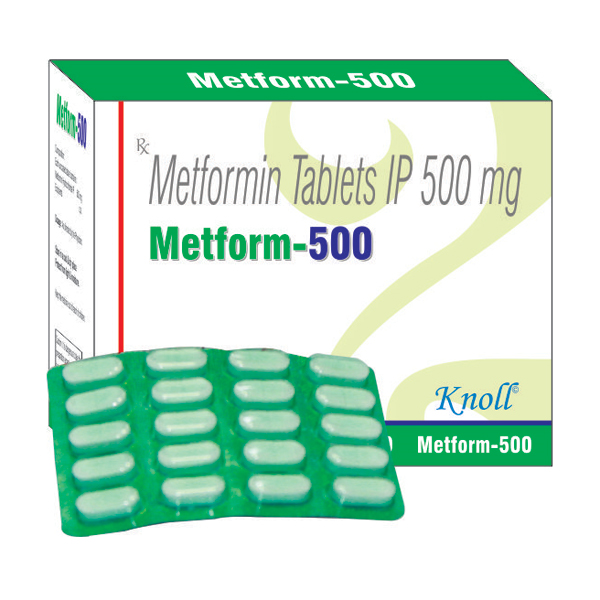🔹 Metformin Tablet 500 mg – As Licensed
📄 Description:
Metformin is an oral antidiabetic drug from the biguanide class. It is the first-line treatment for Type 2 diabetes mellitus, especially in overweight individuals. It lowers blood glucose primarily by decreasing hepatic glucose production and improving insulin sensitivity.
💊 Prescription / Use:
- Indications:
- Type 2 Diabetes Mellitus (especially with obesity)
- Polycystic Ovary Syndrome (PCOS) (off-label use)
- May be used in combination with sulfonylureas, DPP-4 inhibitors, or insulin
- Dosage:
- Starting dose: 500 mg once or twice daily
- Max dose: up to 2000–2500 mg/day, in divided doses
- Always taken with or after meals to reduce GI side effects
🔬 Nature:
- Active compound: Metformin Hydrochloride
- Class: Biguanide
- Action:
- Decreases hepatic gluconeogenesis
- Enhances peripheral glucose uptake
- Does not cause hypoglycemia when used alone
- Tablets may be immediate-release or extended-release (XR)
🌟 Advantages:
- Weight-neutral or mild weight loss
- No hypoglycemia risk (as monotherapy)
- Improves lipid profile
- May reduce cardiovascular risk
- Effective and low cost
📦 Common Packaging:
- Blister packs or strip packs of 10 or 15 tablets per strip
- Each tablet clearly labeled:
- “Metformin 500 mg”
- Batch number, expiry, and manufacturer details
🧊 Storage:
- Store in a cool, dry place below 25°C
- Protect from moisture and direct sunlight
- Keep in original packaging until use
⚠️ Precautions:
- Contraindicated in:
- Severe kidney disease (eGFR <30 mL/min/1.73 m²)
- Acute metabolic acidosis (e.g., diabetic ketoacidosis)
- Use caution in liver disease, alcohol abuse, or elderly patients
- Temporarily stop during contrast scans or surgeries
- Risk of lactic acidosis (rare but serious) — monitor for weakness, malaise, breathing difficulty
👩⚕️ Patient Advice:
- Take with meals to reduce stomach upset
- Do not skip meals or doses
- Inform doctor about kidney problems or other medications
- Stay hydrated
- Avoid excess alcohol intake
- May cause mild nausea or diarrhea — usually subsides in a few days
- Regular blood sugar monitoring and HbA1c checks are essential

